Islamic State group hits back as Iraqi army moves into Falluja
- Published
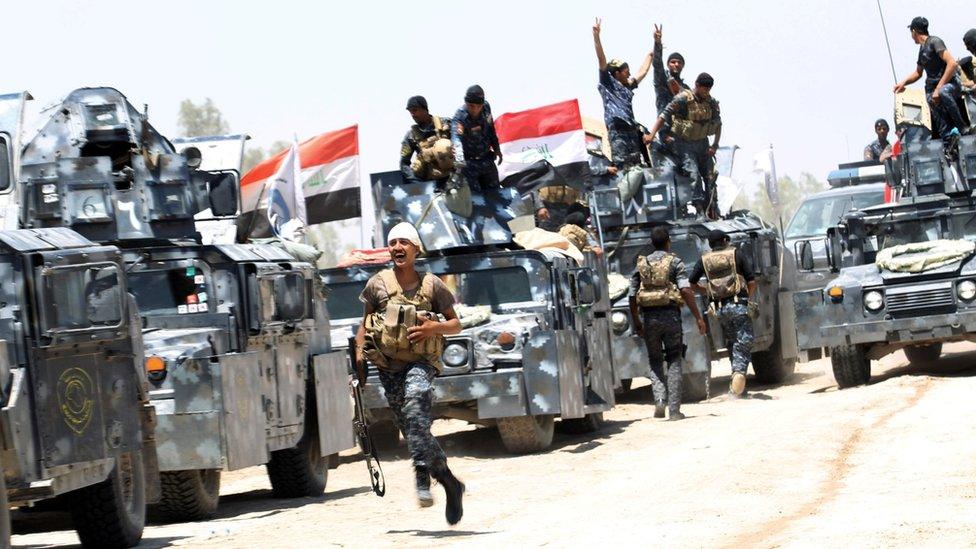
Iraq's military says civilians should leave Falluja or stay indoors
Militants from the so-called Islamic State have launched a dawn counter-attack as Iraqi government troops push into the city of Falluja.
A day after troops advanced through the southern suburb of Nuaimiya, scores of IS fighters attacked them, army officers told news agencies.
The army defeated the attackers but suffered casualties, the sources said.
Aid workers are increasingly concerned for the safety of 50,000 civilians said to be trapped in Falluja.
Reports speak of people starving to death and of being killed for refusing to fight for IS.
Read more: Testimony from inside Falluja
The Iraqi military has urged those remaining to either leave the city or stay indoors but IS is preventing civilians from fleeing.

Analysis by Mina al-Lami - BBC Monitoring
IS claims to be successfully repelling the Iraqi army offensive against it in Falluja, providing battle footage and images as evidence.
Last week, the group highlighted what it said was the impact of the offensive on civilians in the city, releasing footage of severely-injured children that was then widely shared on social media. The group typically shows images of civilian casualties to undermine anti-IS military campaigns.
Although IS has not commented on civilians trapped in the city in the latest offensive, it has in the past warned Sunni Muslims against leaving IS-held territory.
And last week its spokesman, Abu-Muhammad al-Adnani, said that IS militants would "fight to the death" in all its strongholds even if it meant the death of civilians - indicating that the group will pursue a scorched earth policy.
As such, it is unlikely that IS would allow civilians to leave Falluja. The UN refugee agency says families have reported being used as human shields by IS, forced to move with militants from one location to another.

Falluja fell to IS in January 2014, a key moment in the Sunni Muslim jihadist group's rise that saw it declare a caliphate across swathes of Iraq and Syria.
It is one of two major cities held by IS in Iraq - the other being Mosul.
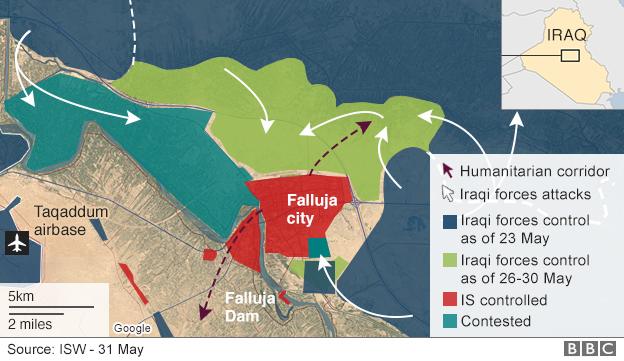
Lt Gen Abdelwahab al-Saadi, the overall commander of the Falluja operation, told AFP news agency around 100 IS fighters had taken part in the attack and 75 of them had been killed.
"They came at us heavily armed but did not use car bombs or suicide bombers," he said.
But two officers with special forces in the area told the Associated Press news agency that the jihadists had sent out six explosives-laden cars, none of which reached their targets.
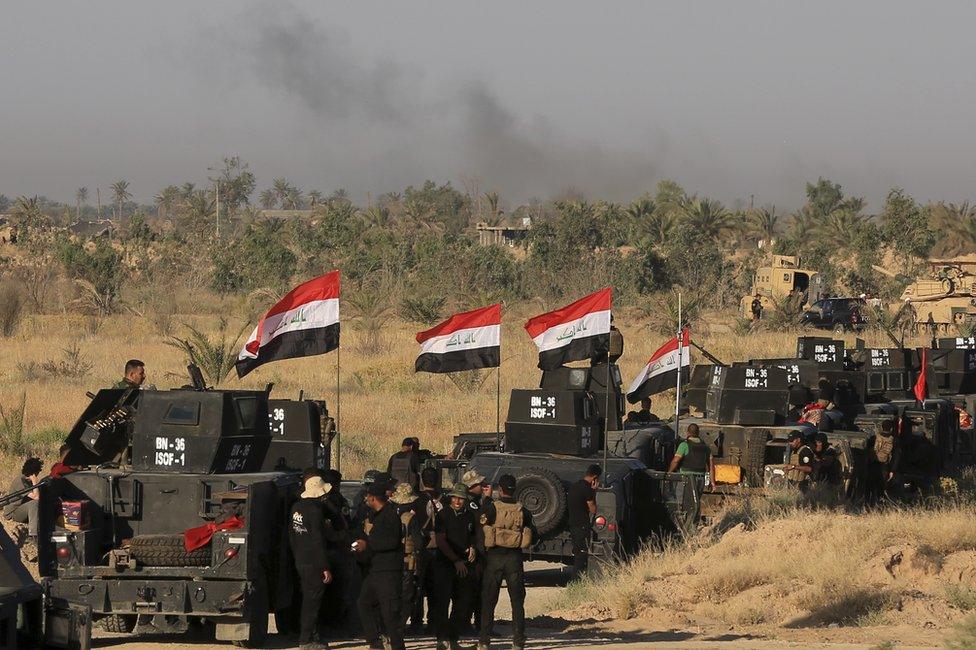
A long line of government armoured vehicles could be seen outside Falluja on Monday
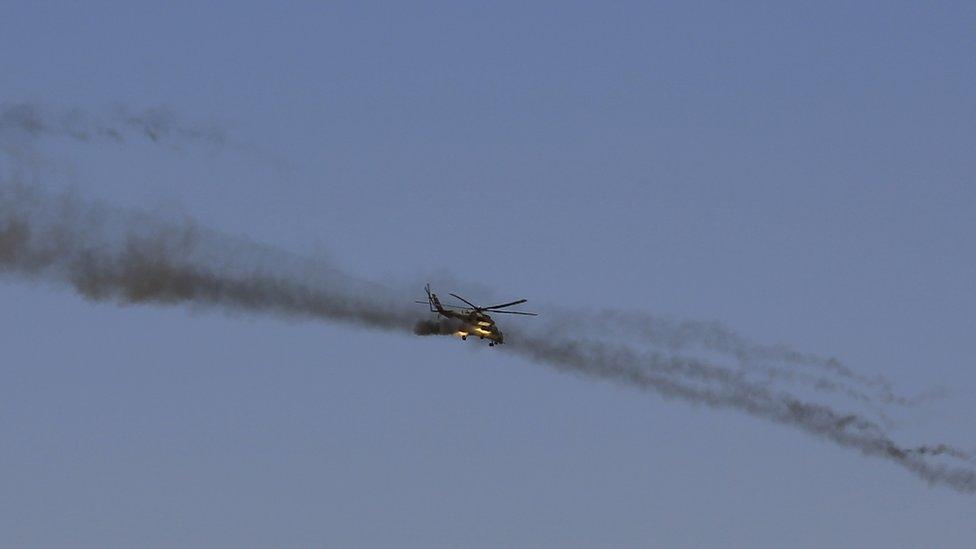
Helicopter gunships are backing the government advance
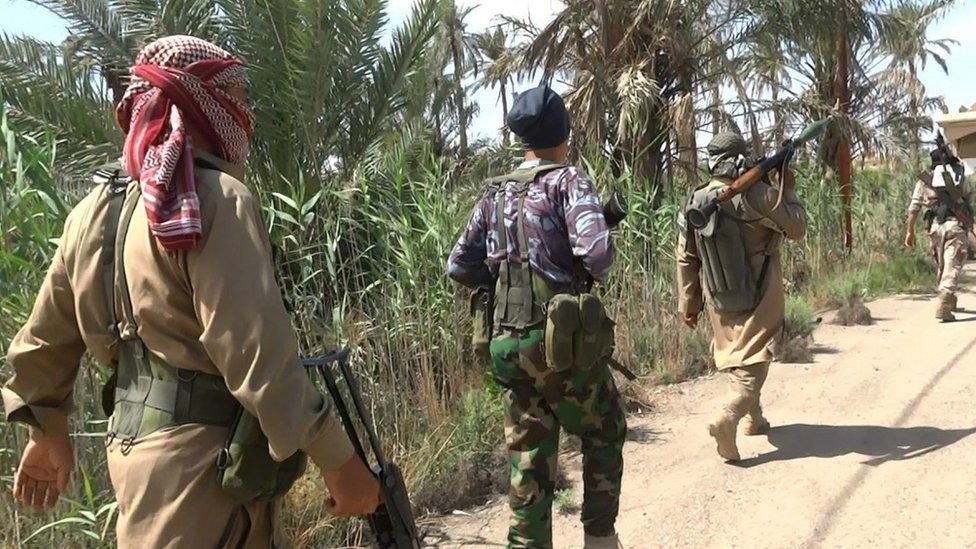
Photos of militants said to have been taken in Falluja have been posted online by Islamic State
IS also used snipers and tunnels in the attack, they added, speaking on condition of anonymity.
Jan Egeland, secretary general of the Norwegian Refugee Council, which helps families displaced from the city, warned on Tuesday that a "human catastrophe" was unfolding in Falluja.
"Families are caught in the crossfire with no safe way out," he said.
"Warring parties must guarantee civilians safe exit now, before it's too late and more lives are lost."
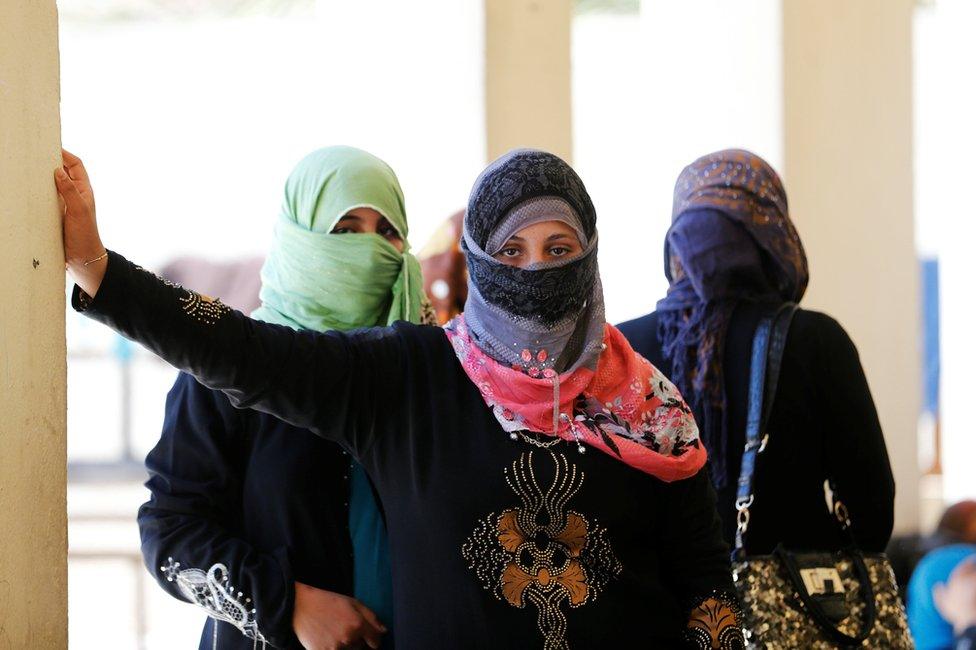
Civilians from Falluja have found shelter in the Iraqi town of Garma
The situation of civilians in the city is dire, the BBC's Jim Muir reports from Iraq.
They have lived through a nine-month siege with little food or medicine and now they face mortal danger if there is an all-out assault on the city centre, our correspondent says.
The IS fighters are being widely accused of using them as human shields, he adds.


Falluja - key facts:
had population of more than 300,000 before it was seized by first al-Qaeda and then by IS in 2014
has always been a hotbed of Sunni defiance, becoming a symbol of resistance to US forces in violent battles in 2004
controls main highway from Baghdad to both Jordan and Syria
is known as the "city of mosques" - more than 200 mosques in city and surrounding area

Footage shows the Iraqi army using heavy artillery on the ground, and being assisted by US jets from the air

Are you in Falluja? Have you been affected by the issues raised in this story? Let us know about your experiences. Email haveyoursay@bbc.co.uk, external with your stories.
Please include a contact number if you are willing to speak to a BBC journalist. You can also contact us in the following ways:
WhatsApp: +44 7525 900971
Send pictures/video to yourpics@bbc.co.uk, external
Tweet: @BBC_HaveYourSay, external
Send an SMS or MMS to 61124 or +44 7624 800 100